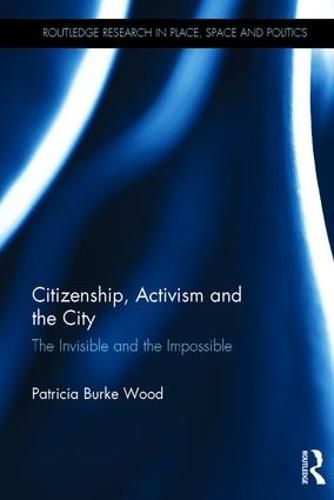Readings Newsletter
Become a Readings Member to make your shopping experience even easier.
Sign in or sign up for free!
You’re not far away from qualifying for FREE standard shipping within Australia
You’ve qualified for FREE standard shipping within Australia
The cart is loading…






Were the occupations of 2010-11 - from Spain to Tahrir Square to Occupy Wall Street - a success or failure? Are they the model for urban radical politics? This book challenges common understandings and underlying assumptions of what constitutes activism and resistance. It proposes a critical urban theory of politics and citizenship that is grounded in the city as it is inhabited. For those who are marginalized, the city is a double-edged sword of oppression and emancipation.
This book argues for an intersectional approach that actively dismantles hierarchies and embraces a wider range of acts of resistance and creative transformation, one in which we recognize these acts of citizenship as a form of constitutionalism. Wood reframes the theorization of protest and of the city, ‘post-political’ literature and the history of protest, and Marxist and anarchist ideas about the time and space of politics. Through this, she adopts a unique approach to provide new theoretical insights and challenges to post-political thinking.
This book will be valuable reading for those interested in political, urban and social geography, in addition to political economy and progressive politics in the urban context.
$9.00 standard shipping within Australia
FREE standard shipping within Australia for orders over $100.00
Express & International shipping calculated at checkout
Were the occupations of 2010-11 - from Spain to Tahrir Square to Occupy Wall Street - a success or failure? Are they the model for urban radical politics? This book challenges common understandings and underlying assumptions of what constitutes activism and resistance. It proposes a critical urban theory of politics and citizenship that is grounded in the city as it is inhabited. For those who are marginalized, the city is a double-edged sword of oppression and emancipation.
This book argues for an intersectional approach that actively dismantles hierarchies and embraces a wider range of acts of resistance and creative transformation, one in which we recognize these acts of citizenship as a form of constitutionalism. Wood reframes the theorization of protest and of the city, ‘post-political’ literature and the history of protest, and Marxist and anarchist ideas about the time and space of politics. Through this, she adopts a unique approach to provide new theoretical insights and challenges to post-political thinking.
This book will be valuable reading for those interested in political, urban and social geography, in addition to political economy and progressive politics in the urban context.